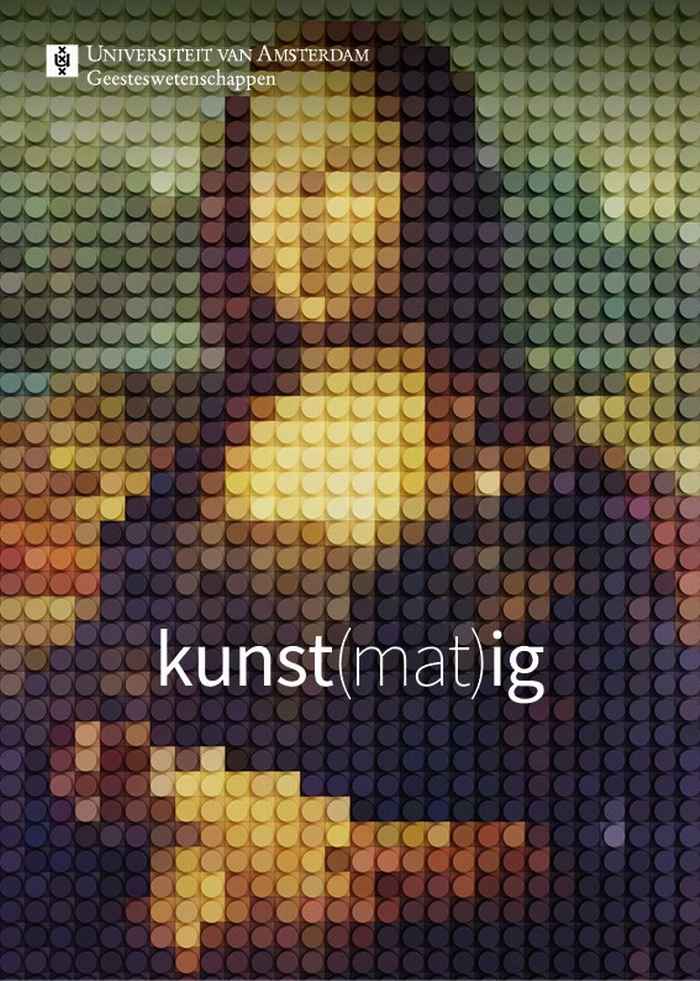Faculty opening academic year 2023-2024
Theme: Kunst(mat)ig
- Date
- 14 September 2023
- Time
- 17:00 -22:30
- Location
- De Rode Hoed

Programme
16:00 - 17:00 Walk-in
17:00 Opening and word of welcome by Dean Marieke de Goede
17:05 Programme Kunst(mat)ig with:
Simone Atangana Bekono - Marshmallow
Simone Atangana Bekono will give a brief reflection on her experience as an Honorary Fellow at the Faculty of Humanities, where she focused on intersectional approaches to intimacy in contemporary literature. During the fellowship, she also worked on her poetry collection Marshmallow, to be published in January 2024. The poems in Marshmallow consist of two monologues by characters reflecting on themes of lust, violence, intimacy, transformation, mourning and romance.
Marleen Rensen - Life and art(moderation): Amsterdam in diaries
For historical research on Amsterdam, diaries are unique sources, providing an authentic, human perspective on everyday city life. For some Amsterdammers, writing a diary is a necessity of life, for others (also) an art form. But isn't the diary primarily a Western genre? Many migrants who settled in the capital never kept a diary. How can we collect their life stories? Can art help with this? And AI?
Niels ten Oever - Moderate and powerful technology: the critical infrastructure lab
Infrastructure has long been left to the market, but is now in the spotlight as a geopolitical battleground. This is not surprising considering that infrastructure sets the invisible rules for everyday life. The critical infrastructure lab explores power and possibilities in transnational communication infrastructures, from telegraph and internet to 5G. What can a communication infrastructure look like that puts people and planet at the centre rather than profit and capital?
Intermezzo Dance
Work in progress Choreographer Kirsten Wicklund, music Amarili mia bella – Guilio Caccini, dancers Bo-Ann Zehl and Robin Park from Junior Company Nationale Ballet.
Esther Weltevrede - Art(mat)ical social media personas
On social media, artificial personas have their own duality and dynamics. Esther Weltevrede discusses methods for identifying, analysing and understanding unauthorised and hidden fake accounts, crucial in the context of contemporary concerns about online manipulation. Also discussed is the use of intentionally created, inventive research personas, with a focus on studying personalisation algorithms and how they shape the user experience.
Tommy Tse - I'm a Barbie girl, in the AI world: Artful, artificial, affective
Artificial intelligence allows you to look like Barbie / write like Shakespeare / think like a machine - but still not feel human. As humanities scholars begin to question their research goals and methods, their teaching and their field's place in the age of AI, Tommy Tse asks: How can I think / work / live better with artificial intelligence?
Jitte Waagen - AI in the 4D Research Lab, application, reflection and future
Jitte Waagen explains where AI, in the form of machine learning and ChatGPT, for example, is being used in the work of the 4D Research Lab, or is starting to come into view. What is the sense, and nonsense, of the current uses, and what are potentially interesting opportunities for research at the 4D Research Lab in the near future?
18.10 Final word by Marieke de Goede
Interlude Opera
No. 1 Chanson du Depart, No. 2 Chanson a Dulcinee & No. 3 Chanson du Duc, performed by baritone Georgiy Derbas-Richter, accompanied on piano by Amy Chang (The National Opera Studio).
18.15 - 23.00 Celebratory drinks
Register via the form below: